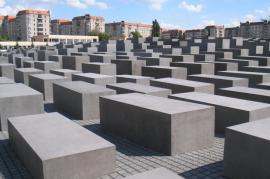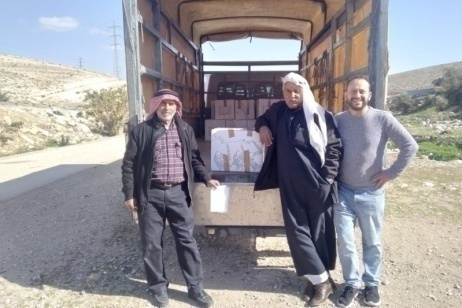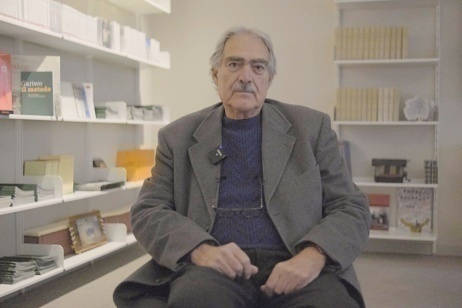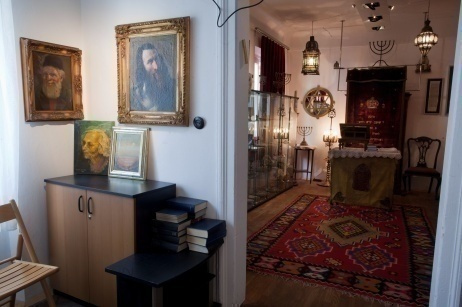
Holocaust Memorial (Memorial of the murdered Jews of Europe) in Berlin
Interview to Ulrich Klan, President of Armin T. Wegner Foundation based in Wuppertal and Berlin
We asked Ulrich Klan, relentless organizer of Memorial Days to make people aware of the exemplary man who wrote a protest letter to Hitler precisely at the outbreak of the first anti-Jewish pogroms for he had understood that Germany was going to stain itself with an unbearable responsibility, to explain us the relationship between memory of Good and memory of Evil and in particular to tell us how Holocaust Memorial Day is perceived in Gerkmany. The emerging picture is rich at initiative and sensitivity, although it is still necessary to carry on the engagement to remember and prevent genocide all the year round.
How is Holocaust Remembrance Day organized and managed in Germany? Do people feel involved in it? Do they take part in the celebrations?
In Germany there are no celebrations whatsoever. It is a remembrance and reflection day. All cities carry out activities related to memory around 27 January normally. Usually there is a major initiative at the City Hall and then also events in the schools, theatres and almost everywhere. For example here in Wuppertal every school organizes every year an exhibition about the Holocaust. The goal is to involve young people.
Do many people participate?
Yes, they do. In Germany young people and students take part in the events. Every year new people attend them, there are hundreds thousands youths at the various events and they often organize something by themselves. For instance participation to our event for Holocaust Memorial Day 2012 was very high. Involving the Land of Nordrhein-Westfalia, in its Berlinese seat, we invited famous actress Iris Berben to read the famous letter to Hitler by Armin T. Wegner and texts by some Jewish authors. A chorus accompanied by solo violinist Birgit Lehmann played music by composers murdered or exiled by the Nazis and at the end we sang John Lennon’s “Imagine” in Arab, Hebrew, Armenian, Turkish, English and German. In my capacity as moderator I remembered the victims of the Holocaust and everybody was very moved.. We also remembered the figures of “Righteous among the nations” such as Armin T. Wegner, who ran personal risks to rescue the Jews or report what the Nazis perpetrated against them (he was personally arrested, jailed, interned in a lager, tortured and exiled).
Did you prepare anything for 2014?
On Holocaust Memorial Day this year Armin T. Wegner is not holding any particular event, but we are working to prepare an event for 6 March, the European Day of the Righteous. In the past years we worked with the cities of Berlin and Düsseldorf besides Wuppertal. This year we will certainly do something also in our Berlinese seat and in other towns. In 2014 we will focus not only on Wegner, but also on other Righteous figures such as Václav Havel and other exemplary men.
What is the relationship between Holocaust remembrance and remembrance of the Righteous?
This is a subject that is deeply felt by us of Armin T. Wegner Foundation, because we don’t only think of the victims or of the crimes committed, but also always of the Righteous such as Wegner or Oskar Schindler, who rescued the persecuted. We always have this double level.
Which role can an exemplary figure of Armin T. Wegner play? A role for remembrance but also other roles maybe?
Of course the Righteous help build friendship between Jews and non-Jews. For example a poet persecuted by Nazism such as Else Lasker-Schüler, who was Jewish, had a lot of non-Jewish friends an on this pre-existing reality of friendship we can build ties also today, stregthening the relations between Jews and non-Jews. People who were once divided now maybe can meet again thanks to this memory.
Does this help reconciliation?
No, I wouldn’t talk about reconciliation. Reconciliation can be offered only by victims, if they want to. We as Germans cannot offer reconciliation. But we can work to build relationships.
Let’s talk about 27 January specifically, and not about 6 March. Is there also room to remember other genocide cases during Holocaust Remembrance Day?
On 27 January Germany remembers the extermination of the European Jews, not the Armenian, Rwandan or other genocide cases. It is our duty on this day to remember the German responsibilities. On this day to respect the victims we talk only about the Holocaust victims. Of course we as Armin T. Wegner Gesellschaft talk also about the other genocide cases all around the year, but as Germans we don’t do on 27 January.
Do you think this remembrance Day is already good as it is or can be improved?
There is always something to improve and we must never be content. We must remember the Holocaust every day of the year in our work with the schools, workers, and every component of society. We should remember always and work always against violence. Moreover also the media should do more also far from the recurrencr of 27 January.






